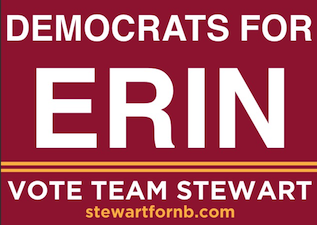
‘We Can Do it Better.’ Meet the Millennials Taking Over City Hall
“The youngest generation is pretty sure that we can do it better than the folks that have been doing it for a long time,” says Myrick, who was re-elected in 2015 with 89% of the vote. “And the folks that have been doing it for a long time are pretty sure that the youngest generation has no idea what we’re doing.”
Young people have always rolled their eyes at the received wisdom of the olds, but now they’ve got numbers on their side. Millennials–born between 1980 and 2000–overtook baby boomers as the largest segment of the U.S. population in 2015, yet they are led by one of the most geriatric federal governments in history. Donald Trump, at 71, is the oldest President ever elected to a first term. On Capitol Hill, the average ages in the House and Senate were 49 and 53 in 1981; today they’re 59 and 62. Nearly half of Senators defending their seats in 2018 will be over 65 on Election Day, including California’s Dianne Feinstein, who recently announced that she’ll run for re-election at 84. More than half of the Supreme Court was born before you could buy a color TV.
In government, that attitude can have unintended consequences. “You have no management experience when you’re just entering your professional career,” says Erin Stewart, the 30-year-old Republican mayor of New Britain, Conn. When she was elected at 26, she tried to reorganize city government, but admits she didn’t get it right at first. “I had very high expectations,” Stewart says, adding that she was asking too much of longtime staffers and initiating too many new projects. She realized she had to listen to more experienced city employees before making changes.
That can be frustrating for a generation raised to believe that anything from taxis to dating could be hacked. “Government is not designed to move fast,” says Tubbs, the youngest mayor of a U.S. city with more than 100,000 people. “If you prototype something and it fails, it’s just an internal conversation in your office. If I prototype water delivery or trash, it touches everyone, especially the most vulnerable.”
That doesn’t mean these mayors are leaving their phones at home. Young leaders insist on making government as wired and social-media-savvy as its citizens. An hour before each city-council meeting in New Britain, Stewart sits down in front of her computer and launches a Facebook Live to update residents on the agenda–new plans for paving roads, hiring police officers and building bridges–and answer their questions in real time. “Let’s not spend money on a bridge!” one resident comments. “When it collapses,” the mayor replies, “you’ll wish we spent it, lol.”
The videos can get hundreds of comments and more than 3,000 views, not bad in a city of 73,000. “We’re averaging all these views, but we can’t get two people to show up to city hall,” says Stewart.”That’s fine, I’ll bring government to you.”
…
Elections, of course, are win-lose affairs, yet elected millennials appear uncommonly comfortable questioning their parties. Buttigieg expressed doubts about Democratic strategies for reviving the Rust Belt economy, and Myrick, who campaigned as a surrogate for Hillary Clinton, said he’s not surprised her message didn’t resonate. Stewart, the Republican mayor of New Britain, Conn., keeps a picture of Obama in her office. Like almost all the mayors interviewed, she says she feels “inspired” by the former President. She also says Trump has made the office into a “joke.”
###
This article originally appeared here: http://time.com/4979264/meet-millennials-taking-over-city-hall/

